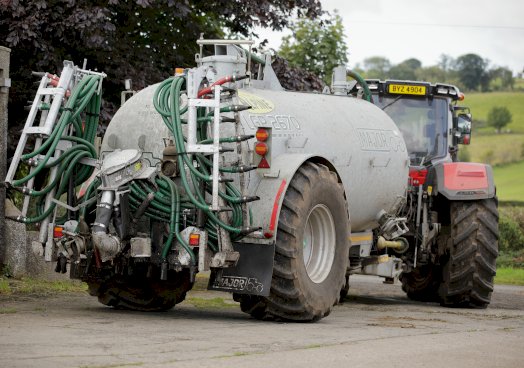
County Fermanagh countryside. Picture: Cliff Donaldson
Note: This piece does not set out the opinion of the Ulster Farmers’ Union (UFU) on any proposals, but presents the facts of the August 2025 CenTax Policy Report, alongside an overview of UFU ongoing engagement and lobbying activity.
The Centre for the Analysis of Taxation (CenTax) has published its independent review of the Government’s planned inheritance tax (IHT) reforms, due to take effect in April 2026. The study has received widespread media coverage in the last week and has become a key reference point in the debate around inheritance tax and agricultural succession.
CenTax estimates that between 480 and 600 farm estates across the UK would be affected by the proposed cap on full Agricultural and Business Property Relief (APR/BPR) at £1 million, with 50% relief above that threshold. Whilst at a UK-wide level, the report finds that larger estates would bear most of the new liability, it accepts that owner-occupied farms would be disproportionately affected.
However, the focus of the report and most media discussion has been on its cost-neutral alternatives, which aim to balance the Government’s revenue goals with protection for genuine family farms.
Alternative Approaches
- The ‘Clawback Model’
The first option is the so-called clawback, which retains 100% relief provided the land is actively farmed but withdraws it if the inherited assets are sold within seven years. The model has gained traction among industry as it appears to safeguard family succession while discouraging investors to buy up land.
However, CenTax concludes that the clawback would fail to meet the Government’s objectives as wealthier estates could simply hold onto the land for seven years to retain full relief, while the system itself would be complex to administer and impossible to deliver by 2026. It would also raise less revenue than the Government’s current plan.
- The ‘Minimum Share Rule’
CenTax’s preferred alternative is the minimum share rule. This would restrict relief to estates where farm and business assets make up at least 60% of the total value of the estate, ensuring that family farm businesses are supported rather than passive investors using farmland as a tax shelter.
This model could allow the Government to raise the full-relief threshold from £1 million to £5 million to provide greater protection to family farms while being cost-neutral for the Government. However, this rule may slightly increase the concentration of relief among larger estates, and the choice of a 60% threshold creates a cliff-edge that may disadvantage a number of mixed farm businesses. CenTax has found that it is deliverable by April 2026 but may require some “design compromises”.
- Upper Limit on Relief
A second feasible alternative involves a fixed upper limit on the total amount of relief available. All relief would be capped at £10 million overall for qualifying property with no further relief above this limit. Introduced alone, this cap would provide the fiscal space for the Government to increase the 100% relief allowance to £2 million.
They find that this approach is administratively straightforward and can be delivered within the existing timetable.
- Transferrable Allowance
The report also considers whether the combined APR/BPR allowance should be transferable between spouses or civil partners. Under the current proposals, any unused portion of the allowance is lost on the first death. CenTax recommends making it transferable to mirror the treatment of the main and residential nil-rate bands.
This would simplify succession planning, reduce costly restructuring, and provide flexibility for family farms. The short-term cost of this would be modestly higher if applied retrospectively, but the long-term fiscal impact would be minimal.
UFU lobbying continues
The CenTax report has provided valuable evidence on the impact of the current proposals, particularly on owner-occupied farms. Working alongside the other farming unions, the UFU has continued to call for a reversal of the current proposals. In recent months, the UFU has held meetings with the Treasury and DEFRA, as well as backbench MPs and members of parliamentary committees to highlight how damaging the current proposals are for Northern Ireland’s smaller, family-run farm structure.
At home, the UFU is maintaining dialogue with DAERA, MPs, and MLAs to ensure local policymakers understand how the details of these proposals could affect land mobility, investment confidence, and farm succession planning.
As the Finance Bill moves through Parliament, the UFU will continue to monitor developments, contribute to consultations, and continue to call on the Government to withdraw their changes.
The full report can be read here: https://centax.org.uk/policy-brief-the-impact-of-changes-to-inheritance-tax-on-farm-estates/




